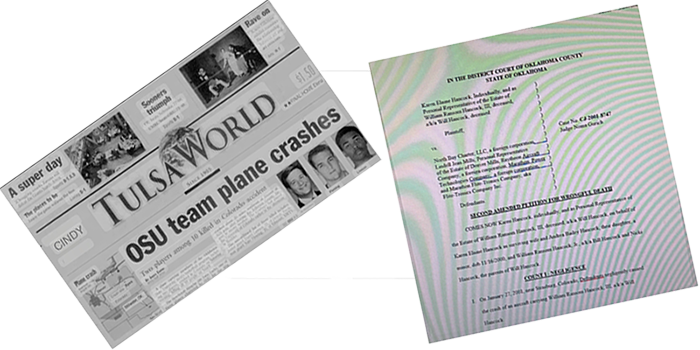
Have you ever wondered if waiting to call a personal injury lawyer might cost you everything? If you’ve been involved in a car accident, slip and fall, workplace accident, or any event causing harm, knowing exactly when to hire a personal injury lawyer can be the turning point between getting full compensation or walking away empty-handed. This guide reveals not just when, but why timing is everything—and what you gain from seeking legal representation at the right moment. Read on to uncover the crucial steps to protect your personal injury claim, your rights, and your financial future.
Are You Wondering If You Need a Personal Injury Lawyer? Essential Insights to Know
Determining when to hire a personal injury lawyer is not always straightforward. Many people delay seeking legal help after an accident, unsure if their situation qualifies as a personal injury case or believing insurance companies will look out for their best interests. But the truth is, understanding injury law and your legal rights is key to making informed choices. A dedicated personal injury lawyer can clarify whether you’re entitled to compensation and help you navigate complex laws, extensive paperwork, and tight deadlines.
For instance, if you suffered injuries in a car accident and are dealing with mounting medical bills, lost wages, or disputes with the insurance company, this is an immediate sign to consider hiring an injury lawyer. Personal injury attorneys not only safeguard your claim but also maximize your compensation and represent your interests every step of the way. The best time to seek legal advice is as soon as possible after your accident—before you talk to insurance adjusters or accept a settlement offer.
Discover the Crucial Moments When to Hire a Personal Injury Lawyer
You don’t need to wait until your situation feels overwhelming. Recognizing the signs that it’s time to hire a personal injury lawyer can save you from pitfalls many accident victims encounter. Some of the most critical moments include immediately after a car accident with injury, when an insurance company offers a quick settlement, or as soon as medical expenses and lost income begin to pile up. Consulting an injury attorney early dramatically increases the likelihood of a fair settlement, rather than being left to navigate complex personal injury laws on your own.
Additionally, if liability for the accident is uncertain or multiple parties are involved, legal representation becomes essential. Experienced personal injury lawyers can quickly evaluate your case, explain your options, and shield you from common tactics used by insurance adjusters to reduce payouts. Don’t wait for your injury case to become complicated—knowing when to hire personal injury lawyer is the first step in building a strong claim.
What You’ll Gain from Knowing When to Hire a Personal Injury Lawyer
- Clarity on personal injury law and your rights
- How to recognize the right time to seek legal help
- Key benefits of consulting a personal injury attorney
- Steps to protect your personal injury claim
- Understanding law firm processes and injury claim strategies

The Importance of When to Hire Personal Injury Lawyer After a Car Accident or Injury
Timing is everything in injury law, especially after a car accident or major injury. The days immediately following an accident can be chaotic, filled with medical care, paperwork, and calls from insurance adjusters. If you delay getting professional advice, crucial evidence may be lost and your claim’s value diminishes. The moment an injury occurs, there’s a limited window to collect details, take photographs, and preserve witness statements. A seasoned injury lawyer understands how to secure this evidence, strengthening your personal injury case.
Consider this: if you suffered a concussion, spinal injury, or broken limb in a car accident, the insurance company might press you to accept an early settlement—often for less than you deserve. Personal injury attorneys know the full extent of what constitutes fair compensation for injuries, pain and suffering, lost income, and even future medical needs. Quickly hiring a lawyer ensures your claim includes all damages, not just those that are immediately obvious.
- Why timing matters in injury law and personal injury claims
- Examples of injuries where prompt legal support affects your case
Injury Law and Your Rights: Knowing When to Hire a Personal Injury Lawyer
Understanding your legal rights under injury law is critical after an accident. Many claimants are unaware of the statutes of limitations, which set hard deadlines for filing a personal injury lawsuit. Missing these deadlines—sometimes as little as one year—means losing your right to compensation forever. A skilled personal injury lawyer not only tracks these time frames but guides you through the maze of requirements unique to every state.
Furthermore, injury laws can be confusing. They often involve comparative negligence, statutes of limitations, and complex regulations that vary depending on your location and the circumstances of your accident. That’s where having an injury attorney on your side makes all the difference. They are equipped to identify liable parties, prove negligence, and ensure your legal rights are protected from day one.
How Personal Injury Attorneys Can Maximize Compensation
Personal injury attorneys play a vital role in securing maximum compensation on your behalf. Unlike insurance companies—who aim to minimize payouts—your lawyer advocates for your best interests. By calculating the true cost of your injuries, including ongoing medical care, emotional distress, and potential loss of earning capacity, these legal professionals ensure no detail is overlooked. Their experience with similar personal injury cases allows them to anticipate challenges and overcome lowball offers.
“Consulting an injury lawyer early can make the difference between a fair settlement and a denied claim.”
In addition, seasoned attorneys are seasoned negotiators, often settling claims for much more than unrepresented individuals. Their familiarity with the tactics used by insurance companies and adjusters in invaluable. By standing between you and aggressive insurers, your attorney creates space for you to focus on recovery rather than administrative stress.
Understanding Insurance Companies and Insurance Adjusters in Personal Injury Claims
After an accident, you will likely deal with an insurance company and its insurance adjuster. It’s important to understand that their primary goal is to limit how much they pay. Adjusters are highly trained to protect their employer’s financial interests, sometimes at the expense of your rightful compensation. They may request recorded statements, ask tricky questions, or pressure you to settle before knowing the full extent of your injuries.
A qualified personal injury lawyer knows how to communicate with insurance adjusters, protecting you from saying anything that could be used against you. They also review every proposed settlement to prevent you from accepting less than needed for long-term recovery. When you work with an injury law firm, you shift the balance of power, making it much harder for insurance companies to take advantage of your situation.
Identifying the Best Time to Hire a Personal Injury Lawyer
Knowing the crucial windows to engage a personal injury lawyer amplifies your chances of securing a strong settlement or winning at trial. You should never wait until issues escalate—proactive legal action is the key. The moments listed below highlight when to act:
- Immediately after a car accident with injuries or property damage
- When an insurance company offers a settlement
- When medical bills or lost wages begin to accumulate
- When liability for an accident is unclear
In each of these situations, contacting a law firm early protects your interests, prevents costly mistakes, and allows your attorney to gather fresh evidence before it is lost or destroyed. Don’t underestimate the boost early legal intervention provides—especially when insurance companies may be working to weaken your claim behind the scenes.
Risks of Delaying When to Hire Personal Injury Lawyer
Waiting too long to hire a personal injury lawyer can jeopardize your entire case. Every state has legal deadlines—known as statutes of limitations—that determine how long you have to file your claim. Miss a deadline and you may lose your right to pursue compensation, no matter how valid your injury case may be. Insurance companies know this and may use delay to their advantage, dragging out the process until your window to file closes.
Additionally, as time passes, crucial evidence may fade. Witnesses may move away or forget details, accident scenes change, and physical evidence deteriorates. The sooner you involve an experienced personal injury attorney, the faster they can preserve critical information, interviews, and records to support your claim.
- Missing legal deadlines
- Jeopardizing your personal injury claim
- Giving insurance adjusters the advantage
In essence, hesitation benefits only one party: the insurance company. Protect yourself by acting promptly.
How Injury Lawyers and Law Firms Support Your Personal Injury Case
A reputable law firm does much more than provide legal advice—they serve as your dedicated advocate during every stage of your personal injury claim. From investigating the circumstances of your accident, gathering records, and identifying applicable injury laws, to negotiating with powerful insurance companies, injury lawyers handle the entire legal process for you. This frees you to focus on medical recovery, confident your claim is in expert hands.
Personal injury attorneys also offer strategic guidance, helping you decide when to accept an offer or proceed to trial. By leveraging their knowledge and resources, you significantly increase your chances of a fair settlement or favorable verdict in your personal injury lawsuit. Their commitment to client outcomes is often reflected in working on a contingency fee basis—meaning they’re paid only if you win.
What Personal Injury Lawyers Actually Do for You
- Investigate the accident and gather evidence
- Negotiate with insurance companies
- Represent you in court if necessary
In practice, an injury lawyer’s efforts often start with a comprehensive case evaluation, including interviews with you and key witnesses, review of medical documentation, and consultation with expert professionals when needed. They then draft and file the necessary paperwork, ensure all deadlines are met, and build a compelling argument for your entitlement to compensation—at every phase communicating your best options and advocating for your interests.

Personal Injury Lawyer Fees and Free Consultations: What to Expect
| Fee Structure | Description |
|---|---|
| Contingency Fee (Typical) | 33% – 40% of total recovery |
| Hourly Fee (Rare in PI cases) | Set hourly rate for legal services |
| Free Consultation | Most law firms offer an initial free call |
Most personal injury lawyers work on a contingency fee basis. This means you pay nothing upfront and only owe legal fees if your lawyer successfully recovers compensation for you. This arrangement makes legal representation accessible—even for clients with limited financial resources. Additionally, nearly all law firms provide a free consultation, allowing you to discuss your case and legal options at no cost or risk.
You should never let a perceived inability to pay legal fees prevent you from getting legal help. Be sure to discuss fee structures during your free consultations there are no surprises if your case proceeds.
Common Misconceptions About When to Hire a Personal Injury Lawyer
- “It’s too early to contact an injury lawyer.”
- “Insurance companies will offer a fair deal.”
- “Legal fees are too expensive for most people.”
Many people mistakenly believe they need to wait until their injuries are fully diagnosed or medical treatment is finished to contact a personal injury attorney. In reality, the earlier you speak to a lawyer, the stronger your claim becomes. Others assume insurance companies will “do the right thing”—but remember, their goal is to minimize payouts, not maximize your recovery.
Finally, concerns over legal costs often deter people from seeking help. As noted, the contingency fee model and free consultations eliminate this barrier. If you’re uncertain, reach out sooner rather than later. Early advice can prevent irreversible mistakes in your injury case.
Critical Factors: When to Hire a Personal Injury Attorney vs. Self-Representation
While it’s tempting to handle your personal injury claim alone—especially in seemingly minor accident cases—there are several situations in which you should always hire a personal injury lawyer. Complex claims, severe injuries, and disputes over liability are red flags that your case requires a professional. Attempting to self-represent in these cases is risky and often results in unfairly low settlements or outright denial by insurance adjusters.
Ultimately, the value, complexity, and stakes of your claim should guide your decision—when in doubt, err on the side of caution and seek advice from an established law firm.
Complex Cases Requiring an Injury Law Firm
- Severe or catastrophic injuries
- Multiple parties involved
- Disputed liability or unclear fault
- At-fault accidents with substantial injuries, situations with multiple defendants, or unclear legal responsibilities are best handled by experienced injury lawyers. Their resources, negotiation skills, and understanding of personal injury law can make or break the success of your claim.
Simplicity and Risks of Handling a Personal Injury Claim Alone
For very minor incidents with undisputed fault and minor property damage, handling the injury claim alone may be possible. However, there’s significant risk if you’re unfamiliar with injury law or unaware of all damages you’re entitled to recover. Errors in communication, paperwork, or negotiations with insurance companies commonly lead to reduced settlements or lost claims. When your well-being and financial future are at stake, the risk of DIY representation rarely outweighs the benefit of hiring a professional.
Always consult an attorney before making this decision—most law firms offer complimentary case evaluations so you can make an informed choice.
Working with a Personal Injury Law Firm: An Overview
Once you decide to hire a personal injury lawyer, the process is designed to eliminate guesswork and stress. Law firms follow structured steps to handle every detail of your claim:
Key Steps Your Lawyer Will Follow
- Case evaluation and investigation
- Filing the personal injury claim
- Negotiating with insurance companies
- Resolution or court trial if necessary
During every phase, your lawyer updates you on progress, clarifies options, and works tirelessly to maximize your recovery. If insurance companies refuse to settle fairly, your attorney is prepared to take the fight to trial, ensuring you receive the outcome you deserve.
How Injury Attorneys Handle Insurance Adjuster Communications
A core benefit of hiring a personal injury attorney is their expertise in managing communications with insurance adjusters. These professionals are skilled negotiators trained to protect the insurance company’s interests, not yours. Injury lawyers act as an effective buffer, ensuring all information shared is accurate and strategically presented.
They also counteract low settlement tactics, demand proper valuation of your losses, and keep negotiations on track. This lets you focus on recovery—not contentious or confusing conversations with powerful insurance companies.

People Also Ask: When to Hire an Injury Lawyer?
Recognizing the Signs You Need a Personal Injury Lawyer
You should hire a personal injury lawyer if you’ve suffered serious injuries, face mounting medical bills, lost wages, or are dealing with an uncooperative insurance company. Additional warning signs include unclear liability, complex accident circumstances, or multiple parties involved. The sooner you consult, the more likely you are to protect your rights and secure fair compensation.
If you have doubts, a free consultation with an attorney is a safe first step.
People Also Ask: What Percentage Do Most Personal Injury Lawyers Take?
Typical Contingency Fees in Personal Injury Law
Most personal injury lawyers work on a contingency fee basis. This typically ranges from 33% to 40% of the total recovery, meaning your lawyer is paid only if your case is successful. This fee structure ensures legal representation is available to everyone, regardless of financial situation.
Always discuss the specifics of the contingency fee and any reimbursement for costs during your free consultation so you know what to expect before signing a contract.
People Also Ask: What Not to Say to an Injury Lawyer?
Statements to Avoid During Your Free Consultation
- Exaggerating or misrepresenting your injuries
- Admitting fault without context
- Withholding key facts about the incident
To get the best advice from your injury lawyer, always be honest and thorough in your description of events. Avoid exaggerating injuries, misrepresenting facts, or making self-incriminating statements (such as accepting full blame) without context. Withholding critical details can hurt your case and hinder your lawyer’s strategy for achieving the most favorable outcome.
People Also Ask: What Is the Average Payout for Personal Injury?
Average Settlements and Factors Affecting a Personal Injury Claim
Average personal injury claim settlements can range from a few thousand dollars for minor injuries to several million for severe, catastrophic cases. Factors impacting the payout include medical expenses, lost wages, pain and suffering, degree of fault, and the availability of insurance coverage. Personal injury lawyers leverage their experience to ensure every aspect of your damages is included in your demand.
Because every personal injury case is unique, consulting an injury attorney is the surest way to learn the true value of your claim and secure a fair settlement.
Frequently Asked Questions on When to Hire Personal Injury Lawyer
- Do I need a personal injury attorney if my injuries are minor?
If your injuries are truly minor and involve no ongoing expenses or lost wages, you may be able to handle your own claim. However, consulting an attorney for a free consultation is beneficial—they can spot potential issues and advise you on whether hiring a professional is worthwhile. - How soon after an injury should I call a law firm?
The sooner, the better. Early contact ensures an attorney can preserve evidence, interview witnesses, and prevent mistakes with the insurance company. Delaying may jeopardize your claim. - Will hiring an injury lawyer affect my chances of settlement?
Yes—in a positive way. Studies show that represented individuals receive higher settlements than those who negotiate alone. Insurance companies know this; hiring a lawyer signals seriousness and protects your interests.
Maximize Your Results: Why the Right Timing Matters When Hiring a Personal Injury Lawyer
- Securing fair compensation
- Avoiding mistakes in your personal injury claim
- Strengthening your legal position against insurance companies
“Acting quickly can mean the difference between winning or losing your personal injury case.”
Your actions immediately after an injury are critical. Hiring a personal injury lawyer without delay expedites your claim, reinforces your case, and levels the playing field with powerful insurance companies.
Take the Next Step: Contact Little Oliver Gallagher for Expert Help on When to Hire a Personal Injury Lawyer.
Don’t wait until it’s too late. The right legal help at the right time protects your claim and maximizes your recovery. Call us at 580-224-0900 for a free consultation.



